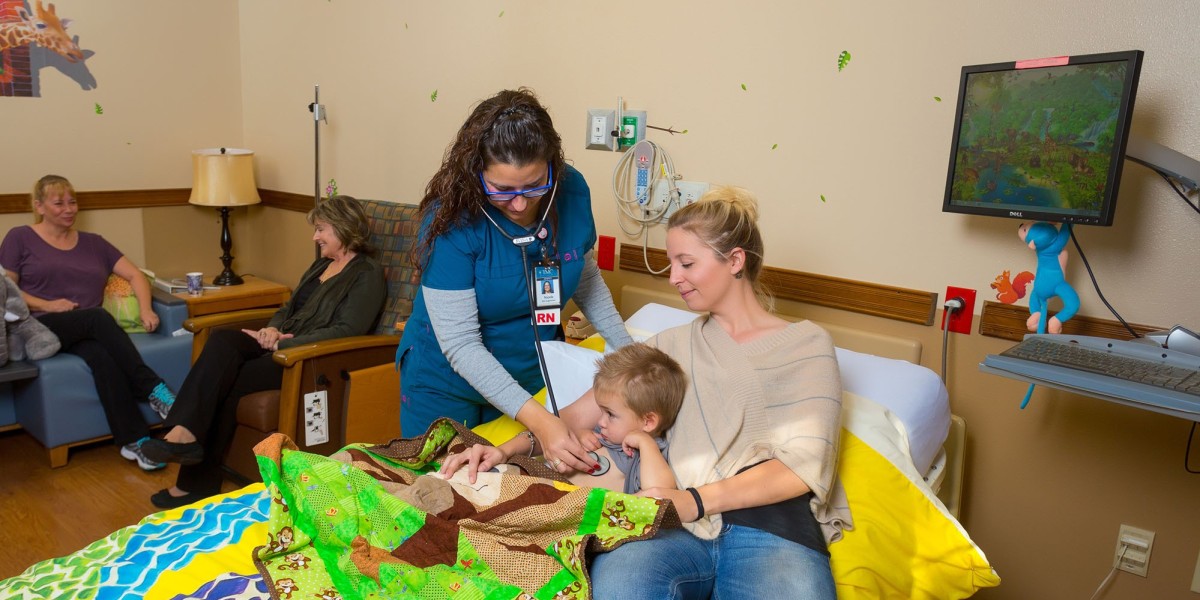Hospice care is a type of healthcare service that provides comprehensive and compassionate care for patients with life-limiting illnesses. While the focus of hospice care is often on managing the physical symptoms of the patient, family-centered hospice takes a more holistic approach by recognizing the integral role of the family in the patient's care. In this article, we will explore the importance of family-centered hospice and its benefits, as well as the challenges and strategies in implementing this model of care.
Definition of Family-Centered Hospice:
Family centered hospice is an approach to hospice care that places the patient and their family at the center of the care team. It recognizes that the patient's family and loved ones are an integral part of the patient's care, and aims to provide emotional, spiritual, and practical support to both the patient and their family. Family-centered hospice takes a multidisciplinary approach, with a team of healthcare professionals working together to provide coordinated and personalized care.
Benefits of Hospice with a Family Focus:
The patient and their family can both benefit from family-centered hospice in a number of ways. These consist of:
Satisfaction of Patients and Families:
Hospice treatment that is family-focused can raise patient and family satisfaction levels. Healthcare providers can help to lessen stress and anxiety and enhance overall quality of life by offering comprehensive support to both the patient and their family.
improved standard of living:
Hospice that is family-focused can also enhance the patient's quality of life. Healthcare practitioners can contribute to the patient's comfort and wellbeing by offering complete care that attends to the patient's physical, emotional, and spiritual requirements.
fewer hospital stays:
Hospice that puts the family first may lessen the need for hospitalisation. Healthcare providers can help to control symptoms and avoid complications, minimising the need for hospitalisation, by regularly monitoring and supporting patients.
Reduced Medical Costs:
Hospice that focuses on the needs of the family might also lower healthcare expenditures. Healthcare professionals can help to lower unneeded testing, operations, and hospitalisations, lowering the overall cost of care, by offering coordinated and individualised care.
Implementing Family-Centered Hospice Faces Challenges and Obstacles:
Family centered hospice has a lot of advantages, but there are also a lot of difficulties and obstacles in the way of its implementation. These consist of:
Limited Resources To offer complete care, family-centered hospice needs a diverse team of medical specialists. However, the restricted resources of many healthcare systems make it challenging to offer this calibre of treatment.
Language and cultural barriers:
Providing family centered hospice might also be difficult due to linguistic and cultural limitations. Healthcare practitioners must be aware of the patient's and their family's cultural and linguistic needs in order to deliver care that is appropriate for that culture.
Absence of Knowledge and Education:
Many patients and their families might not understand the advantages of family centered hospice care or may have preconceived notions about it. This can make it challenging to put this care paradigm into practise.
Multidisciplinary Strategy:
When resources are scarce, a multidisciplinary approach can help deliver complete care. Working together with a group of medical experts, such as doctors, nurses, social workers, chaplains, and volunteers, may be necessary for this.
Individualised Care:
Family centered hospice may function more effectively if it offers individualised care that is catered to the requirements of the patient and their family. This may entail routine evaluations and care plan modifications.
Conclusion:
Hospice care that is family-centered is significant because it acknowledges the family's crucial involvement in the patient's care. Family centered hospice can enhance overall quality of life and lower healthcare costs by offering thorough, compassionate care that attends to the patient's, as well as their family's, physical, emotional, and spiritual needs.
FAQs:
What is hospice that is family-centered?
A form of treatment called "family-centered hospice" acknowledges the crucial part that the patient's family plays in their care. It offers thorough, compassionate treatment that attends to the patient's and their family's physical, emotional, and spiritual needs.
What advantages do family-centered hospices offer?
Hospice care that is focused on the needs of the patient's family can increase patient and family happiness, enhance the patient's quality of life, lessen the need for hospitalisation, and cut healthcare expenses.
What are some of the difficulties in putting family-centered hospice into practise?
Limited resources, linguistic and cultural hurdles, a lack of knowledge and education, stigma and preconceptions, and lack of awareness and education are some of the difficulties in adopting family centered hospice.
How can healthcare workers overcome these difficulties?
By working together and speaking clearly, conducting community outreach and education, using a multidisciplinary approach, and offering individualised care that is catered to the specific requirements of the patient and their family, healthcare providers can overcome these difficulties.
Is family-centered hospice appropriate for all patients?
Healthcare specialists will evaluate each patient and family to determine whether family-centered hospice is the best model of care for their requirements. It may not be suited for everyone.








